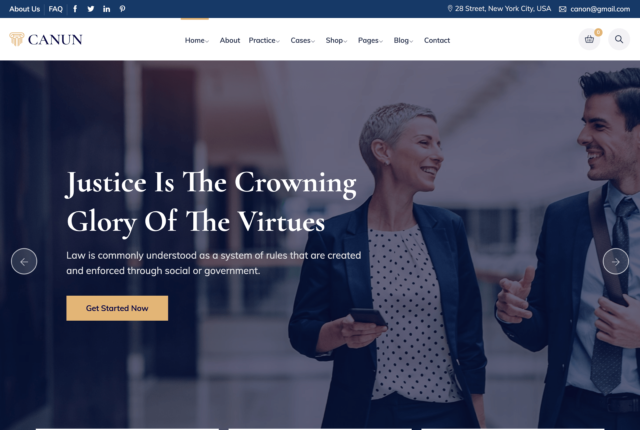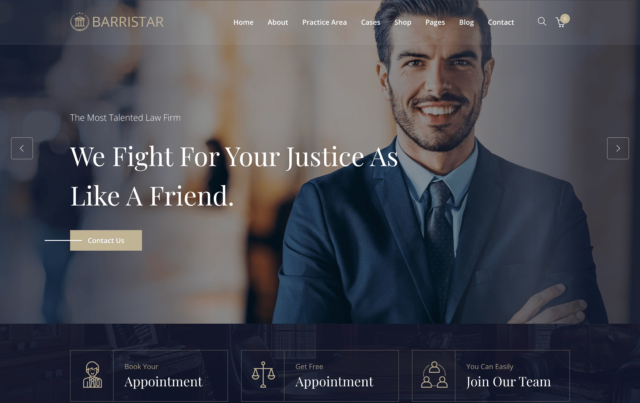Read for more information on the rules for online advertising for Nevada attorneys
Nevada Attorney Advertising Rules: Comprehensive Overview
Attorneys practicing in Nevada must adhere to specific advertising regulations as outlined in the Nevada Rules of Professional Conduct (NRPC), particularly Rules 7.1 through 7.5, and Supreme Court Rule 106. These rules are designed to ensure that legal advertising is truthful, non-misleading, and upholds the integrity of the legal profession. Below is a detailed overview of the key provisions governing attorney advertising in Nevada, with references to specific rules.
Rule 7.1: Communications Concerning a Lawyer’s Services
- Prohibition of False or Misleading Communications:
- Lawyers must not make false or misleading communications about themselves or their services.
- A communication is considered false or misleading if it contains a material misrepresentation of fact or law, or omits information that makes the statement as a whole materially misleading.
- Avoiding Unjustified Expectations:
- Attorneys should avoid statements that create unjustified expectations about the results they can achieve.
- Comparisons with other lawyers’ services are prohibited unless they can be factually substantiated.
Rule 7.2: Advertising
- Permissible Advertising Methods:
- Lawyers may advertise their services through written, recorded, or electronic communication, including public media.
- All advertisements must comply with Rule 7.1.
- Payment for Recommendations:
- Lawyers shall not give anything of value to a person for recommending their services, except for:
- Paying the reasonable cost of advertisements or communications permitted by these rules.
- Paying the usual charges of a lawyer referral service or other legal service organization.
- Lawyers shall not give anything of value to a person for recommending their services, except for:
- Mandatory Disclaimers and Disclosures:
- Use of Actors:
- If an advertisement uses actors to portray lawyers, members of the law firm, or clients, or utilizes depictions of fictionalized events or scenes, this must be disclosed.
- The disclosure must be specific enough to identify which persons are actors and must appear for the duration in which the actors appear in the advertisement.
- Lawyer Responsible for Content:
- All advertisements must identify at least one lawyer responsible for their content.
- Areas of Practice:
- Advertisements indicating one or more areas of law in which the lawyer or law firm practices must conform to the requirements of Rule 7.4.
- Contingency Fees:
- Advertisements indicating that the charging of a fee is contingent on outcome or that the fee will be a percentage of the recovery must contain a disclaimer that the client may be liable for the opposing parties’ fees and costs.
- Range of Fees:
- A lawyer who advertises a specific fee or range of fees must include the duration said fees are in effect and any other limiting conditions to their availability.
- For advertisements in media not published more frequently than annually, the advertised fee or range of fees must be honored for no less than one year following publication.
- Use of Actors:
Rule 7.3: Solicitation of Clients
- Direct Contact with Prospective Clients:
- Lawyers must not solicit professional employment through in-person, live telephone, or real-time electronic contact when a significant motive is the lawyer’s pecuniary gain, unless the contact is with:
- Another lawyer.
- A person with whom the lawyer has a family, close personal, or prior professional relationship.
- Lawyers must not solicit professional employment through in-person, live telephone, or real-time electronic contact when a significant motive is the lawyer’s pecuniary gain, unless the contact is with:
- Written, Recorded, or Electronic Solicitation:
- Such communications are permitted but must include the words “Advertising Material” at the beginning and end of the communication, unless the recipient is:
- A lawyer.
- A person with a prior professional relationship with the lawyer.
- Such communications are permitted but must include the words “Advertising Material” at the beginning and end of the communication, unless the recipient is:
- Prohibited Solicitations:
- Solicitation is prohibited if:
- The prospective client has expressed a desire not to be solicited.
- The solicitation involves coercion, duress, or harassment.
- Solicitation is prohibited if:
Rule 7.4: Communication of Fields of Practice and Specialization
- Stating Practice Areas:
- Lawyers may communicate the areas of law in which they practice.
- Claims of Specialization:
- Lawyers must not state or imply they are certified as a specialist in a particular field of law, except:
- If they have been certified by an organization approved by an appropriate authority or accredited by the American Bar Association.
- The certifying organization’s name is clearly identified in the communication.
- Lawyers must not state or imply they are certified as a specialist in a particular field of law, except:
Rule 7.5: Firm Names and Letterheads
- Use of Firm Names:
- Firm names, letterheads, and other professional designations must not be misleading.
- Trade Names:
- Use of trade names is permissible if they do not imply a connection with a government agency or charitable organization and are not otherwise misleading.
- Identification of Jurisdictional Limitations:
- If a firm operates in multiple jurisdictions, any jurisdictional limitations of lawyers not licensed to practice in a particular jurisdiction must be indicated.
Supreme Court Rule 106: Advertising Filing Requirements (Continued)
- Exemptions from Filing:
- Certain communications are exempt from the mandatory filing requirements, including:
- Communications that are exclusively informational and do not solicit business.
- Communications sent solely to existing or former clients.
- Certain communications are exempt from the mandatory filing requirements, including:
- Retention of Records:
- Attorneys must retain a copy of all advertisements for at least four years after their last dissemination. This includes written, recorded, and electronic advertisements.
- Review and Compliance:
- The Lawyer Advertising Advisory Committee reviews submitted advertisements for compliance. Attorneys are encouraged to ensure all materials meet ethical standards before dissemination to avoid potential disciplinary actions.
Additional Considerations
Digital Advertising
- Internet and Social Media Compliance:
- The Nevada Rules of Professional Conduct apply equally to digital advertising, including websites, social media platforms, and pay-per-click campaigns. Attorneys must ensure that online content adheres to the same standards of truthfulness and transparency outlined in Rules 7.1 through 7.5.
- Mandatory Disclaimers for Online Ads:
- Digital advertisements must include required disclaimers, such as identifying responsible attorneys and avoiding misleading statements about results or services.
Use of Testimonials and Endorsements
- Restrictions on Testimonials:
- Testimonials and endorsements in advertisements must not create unjustified expectations or make unverifiable claims.
- If a client testimonial discusses specific case outcomes, the advertisement must clearly disclose that outcomes depend on the unique circumstances of each case and cannot be guaranteed.
Contingency Fee Disclosures
- Required Language:
- Any advertisement mentioning contingency fees must clearly state that clients may still be responsible for court costs and expenses, even if the case is not successful.
Enforcement and Compliance
Disciplinary Actions for Non-Compliance
- Attorneys who fail to comply with Nevada’s attorney advertising rules may face disciplinary action, including fines, suspension, or other penalties.
- The Nevada State Bar Lawyer Advertising Advisory Committee plays a crucial role in monitoring compliance and addressing violations.
Seeking Pre-Approval
- Lawyers unsure about the compliance of a proposed advertisement can submit their materials for pre-approval to the Lawyer Advertising Advisory Committee. This proactive step helps ensure compliance and reduces the risk of disciplinary issues.
Nevada’s attorney advertising rules, outlined in Rules 7.1 through 7.5 of the Nevada Rules of Professional Conduct and Supreme Court Rule 106, are designed to promote ethical and transparent advertising practices. These regulations govern all forms of advertising, from print and television to social media and digital campaigns, ensuring that communications remain truthful, non-deceptive, and professional.
By adhering to these guidelines, attorneys can market their services effectively while maintaining compliance with ethical standards. For further assistance, attorneys can consult the State Bar of Nevada or the Lawyer Advertising Advisory Committee. Proper compliance not only protects attorneys from disciplinary action but also enhances trust and credibility with potential clients.
Our marketing packages include the following
Search Engine Optimization
Paid Search Management
Legal Content Development
Website Design
Live Chat
Social Media Management









